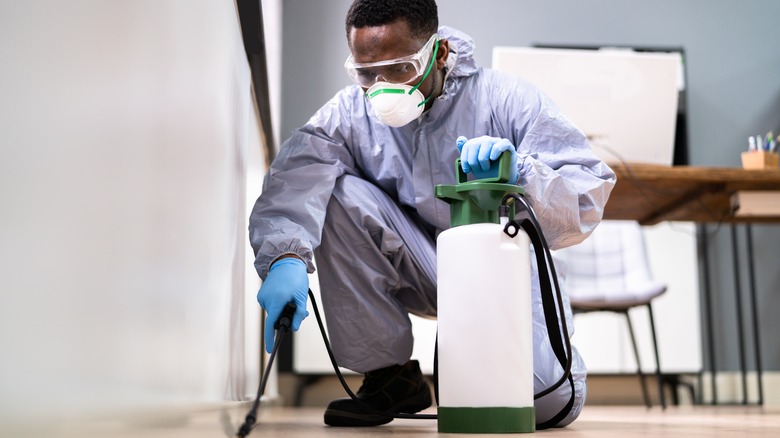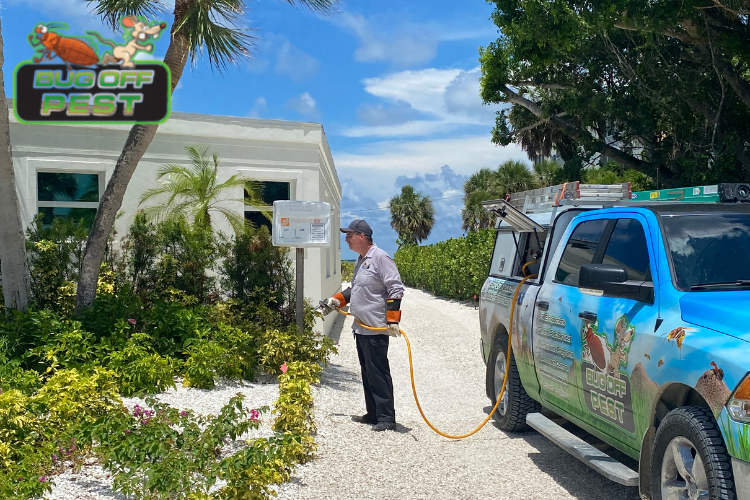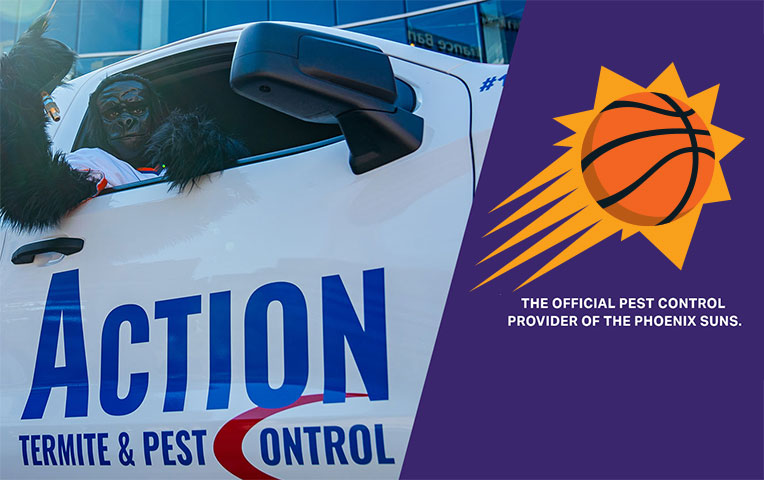Powerful Termite Treatment Port Charlotte to Safeguard Your House
Wiki Article
Discover the Relevance of Parasite Control in Maintaining a Healthy Environment and Treatment Techniques

The Duty of Bugs in Ecological Communities
Pests, often checked out only as annoyances, play a diverse function in ecological communities that is crucial for keeping ecological equilibrium. They contribute dramatically to numerous environmental processes, consisting of pollination, vitamins and mineral biking, and pest control. For example, lots of insect types, such as bees and butterflies, are crucial pollinators for a large range of plants, which consequently sustains biodiversity and food production.In addition, bugs serve as prey for countless predators, developing a critical web link in food webs. This connection guarantees the survival of numerous types and aids control populaces within ecosystems (Termite treatment Port Charlotte). Decomposer parasites, such as particular beetles and fungi, are important in damaging down organic issue, hence enriching dirt and facilitating nutrition recycling.
On the other hand, while pests can be helpful, their overpopulation or intrusion into non-native atmospheres might interfere with these ecological features. This intricacy emphasizes the significance of recognizing pest dynamics, as efficient bug monitoring strategies should think about both their eco-friendly roles and potential effect on human tasks. Stabilizing pest visibility while minimizing harm is necessary for maintaining the honesty of communities and making sure farming efficiency.
Wellness Dangers Connected With Pests
The visibility of bugs in various atmospheres prolongs beyond their ecological duties, as they also pose substantial health threats to people and pets. Many bugs, including parasites, bugs, and rodents, are carriers of conditions that can have significant wellness ramifications. Rats are understood to transmit hantavirus and leptospirosis, both of which can lead to extreme respiratory system and renal issues, specifically.Bugs such as ticks and insects are well known for spreading vector-borne conditions like jungle fever, dengue fever, and Lyme condition. These ailments can lead to high morbidity and death rates, particularly in prone populations. In addition, bugs like bedbugs and roaches can intensify allergic reactions and bronchial asthma, adding to respiratory problems in individuals, specifically those with pre-existing conditions.
Furthermore, the visibility of insects can bring about mental stress and anxiety and discomfort, influencing overall health. Contamination of food and surfaces by bug droppings and remains can result in foodborne illnesses, highlighting the importance of keeping sanitary problems. For that reason, recognizing the health dangers connected with pests is critical in recognizing the requirement of efficient parasite management methods to guard human and animal health and wellness.

Advantages of Effective Parasite Control
Efficient parasite control is vital for keeping a safe and healthy and balanced environment, as it consistently reduces the various dangers connected with insect infestations. One of the main advantages of efficient insect administration is the decrease of carcinogen. Bugs such as insects, roaches, and rodents are vectors for conditions that can affect both pets and people. By managing these populaces, the likelihood of disease transmission is dramatically decreased.Additionally, effective pest control safeguards residential property and frameworks from damage. Lots of insects, like termites and woodworker ants, can trigger substantial structural damage that may require costly repairs. By proactively taking care of these businesses, problems and house owners can shield their financial investments.
Another substantial benefit is the improvement of total high quality of life. A pest-free environment adds to mental health and minimizes tension related to problems. Additionally, reliable bug control fosters a more secure environment for youngsters and animals, guaranteeing that homes continue to be havens devoid of unsafe chemicals and disease-causing organisms.
Common Bug Control Strategies

In the realm of bug monitoring, numerous strategies are used to battle problems properly. These strategies can be generally classified into three main approaches: cultural, mechanical, and chemical controls.
Cultural control entails changing techniques to minimize insect establishment, reproduction, and survival. This may consist of plant rotation, proper hygiene, and environment control, which collectively produce a setting much less favorable to pest spreading.
Mechanical control uses physical methods to eliminate parasites (Termite treatment Port Charlotte). Strategies such as vacuum cleaners, obstacles, and traps are generally Ant exterminator near me used to straight get rid of insects from a location. This method is specifically efficient for taking care of rodents and bugs without the usage of dangerous chemicals
Chemical control involves the application of pesticides to take care of pests. These compounds can be classified right into fungicides, pesticides, and herbicides, each targeting particular sorts of parasites. It is essential to utilize these chemicals deliberately, adhering to security standards and laws to minimize prospective damage to non-target varieties and the environment.
Each insect control method has its limitations and advantages, and typically, an incorporated strategy incorporating multiple methods produces the most effective outcomes in keeping a pest-free setting.
Sustainable Parasite Management Practices
Sustainable pest management practices encompass a variety of techniques created to lessen ecological effect while successfully regulating parasite populaces. These techniques focus on using eco pleasant techniques over chemical pesticides, consequently minimizing the danger of damage to non-target types, including advantageous insects, wildlife, and human beings.Integrated Parasite Monitoring (IPM) is a keystone of lasting methods, combining organic, social, mechanical, and chemical techniques to handle pests. For circumstances, organic control includes introducing all-natural killers or parasites to suppress pest populaces. Social practices, such as crop turning and polyculture, interrupt pest life process and boost environment resilience.
Mechanical approaches, such as traps or barriers, can properly stop pest accessibility without chemical intervention. In addition, preserving healthy environments with correct soil monitoring, plant health, and biodiversity can naturally minimize insect concerns.
Education and recognition are vital elements, empowering individuals and communities to identify pest hazards early and execute preventative measures. Termite treatment Port Charlotte. By promoting an all natural method that stabilizes parasite control with ecological stability, lasting parasite management methods not just protect crops and frameworks but likewise add to a much healthier environment for future generations
Final Thought

Recognizing the health threats associated with pests is essential in recognizing the necessity of effective insect management techniques to protect animal and human wellness.
Reliable bug control is necessary for keeping a risk-free and healthy environment, as it consistently mitigates the countless threats connected with insect infestations.Integrated Pest Monitoring (IPM) is a keystone of lasting techniques, incorporating organic, cultural, mechanical, and chemical strategies to manage parasites. By comprehending the function of pests, identifying affiliated health and wellness dangers, and employing varied treatment techniques, a lasting technique to pest management can be attained. Integrated Bug Administration (IPM) highlights a holistic technique that alleviates harm to beneficial microorganisms while efficiently controlling parasite populations.
Report this wiki page